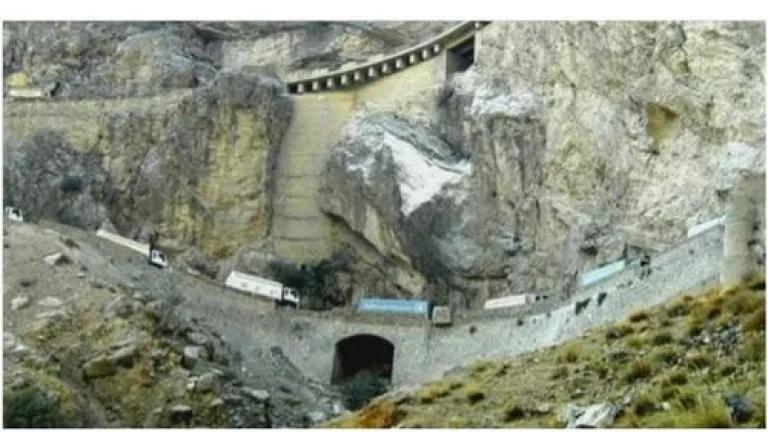
For the men and women who serve in the military, fossil fuels are a liability. In The Burden, a 40-minute documentary that recently premiered at the Environmental Film Festival in Washington, D.C., veterans and fighters from every stratum of the armed forces make it clear why the U.S. military is pushing hard to develop clean energy: to save lives.
The Burden Trailer from The Burden on Vimeo.
NRDC pushes for clean energy development, too, for the much the same reasons - to save lives. We might seem like unlikely allies, but both the military and NRDC see climate change, driven by carbon pollution from fossil fuels, as a clear and present danger--and clean, renewable energy as a solution. That's why we've been working together with the military to find solutions that can reduce the military's dependence on oil and accelerate the development of clean energy nationwide.
Shifting away from oil can make a big difference for the military. In some cases, the difference is between life and death. In the movie's opening scene, a cargo plane drops fuel at a remote Army outpost in Afghanistan. The outpost needs 1,200 gallons of fuel a day that must either drop from the sky or be delivered by convoy through dangerous terrain. The film follows several Army truck drivers, one of whom explains that traveling in a fuel convoy is "a roll of the dice," with a casualty in 1 out of every 24 fuel convoys. The Army estimates that 170 soldiers died protecting fuel convoys in Iraq and Afghanistan in 2007 alone.
Fuel convoys in Afghanistan make easy targets. (photo: Lt. General Steven Andersen)
Oil is an expensive habit, too. The U.S. military is the world's largest institutional consumer of oil. If the price of oil rises by a dollar a barrel, the military's bill goes up by $130 million. The Pentagon spent $20 billion a year on air-conditioning, run off fuel-powered generators, in Iraq and Afghanistan. That's more than NASA's annual budget. On top of that, the cost of defending our oil supply around the globe is more than $83 billion a year, according to a 2009 RAND study.
At the same time, the military's massive oil consumption is contributing to the carbon pollution that drives climate change, which presents new challenges for the military--in the fast-melting Arctic, for example. "As the sea ice clears," observes a naval officer, "if we, as an Arctic nation, don't act, the Russians will. And they'll be operating off our coast."
To address these challenges, the military has been seeking to increase energy efficiency and boost its use of clean, renewable energy. All branches of the military have established clean energy goals and are working to meet them. In Afghanistan last year, energy efficiency and renewable energy improvements, including the use of solar energy at combat outposts, saved roughly 20 million gallons of fuel.

Solar array at Fort Carson, home of the U.S. Army 4th Infantry Division, in Colorado (photo: U.S. Army Corps of Engineers)
My colleagues are working with the U.S. Military Academy at West Point, as it seeks to become one of five net-zero Army bases by 2020. NRDC has also worked with the Department of Defense to create a clean energy siting primer for developers, to ensure that new solar, wind and other sources of renewable energy are developed in places that do not interfere with conservation efforts or military training objectives.
As the biggest energy buyer in the country, the military's investments in clean energy can move markets. The Navy and Air Force are pushing developments in advanced, sustainable biofuels. The Navy's launched its Great Green Fleet at RIMPAC exercises in 2012, featuring a carrier and a squadron of aircraft all running on a biofuel blend. Air Force fighter jets have broken the sound barrier running on a plant-based fuel blend. The Army and Marines are pushing the development of innovative energy efficiency and renewable energy technologies, such as lightweight, flexible solar panels and energy-efficient generators.
As with GPS, or the Internet, one of these military-driven clean energy innovations could be then next big technology that revolutionizes civilian life as well.
The potential for military innovation to have ripple effects nationwide isn't lost on anyone. "As a conservative," says former South Carolina Congressman Bob Inglis in The Burden, "I see incredible opportunity.... We improve our national security. We create jobs and we clean up the air."
Some in Congress, however, question the military's strong support for clean energy. But as Jon Gensler, an Army officer who served in Iraq and is now a member of Environmental Entrepreneurs, a business group affiliated with NRDC, says in the movie, the military's focus on clean energy isn't a cost: "It's an investment, so that future communities don't have to lose their sons and daughters unnecessarily."
